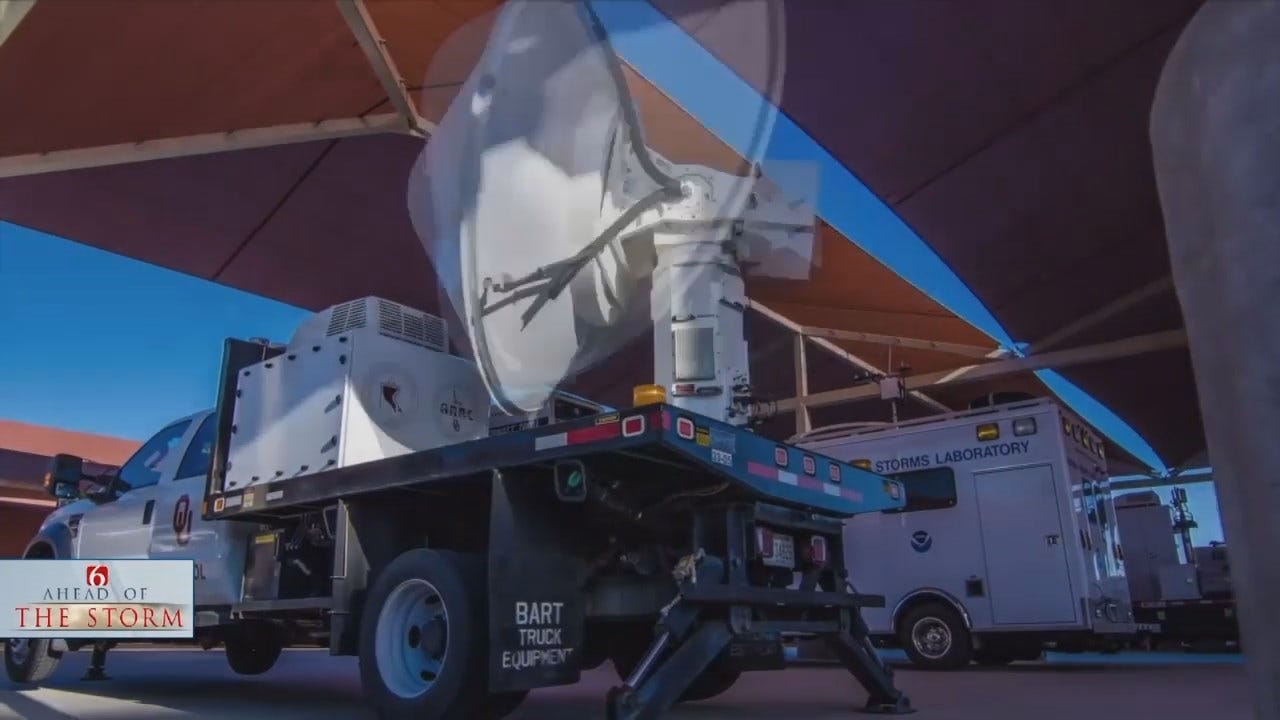New Radar Technology At OU Getting Attention Of U.S. Military
Inside the radar innovations lab at the University of Oklahoma, some of the brightest minds are at work.Monday, March 18th 2019, 11:37 am
Inside the radar innovations lab at the University of Oklahoma, some of the brightest minds are at work.
“We’re trying to come up with ways to better predict tornadoes and formations,” says Research Scientist David Podine. “We need to understand why tornadoes form.”
The lab's team of more than 100 engineers, professors, meteorologists and students are doing that with their mobile radars.
“It’s exciting. You get to actually see the storm and college the data,” Podine says.
Mounted on the back of a truck, the team drives the radar into the field, ahead of the storm and sets it up.
“You have that reference point of see this beautiful thunderstorm, and you can relate what you see visually with what you see in the data," he said.
They've collected data on 30-40 super cells and 15-20 tornadoes, including the 2013 tornadoes in El Reno and Moore.
“We had a dual polarization radar scan the storm every 20 seconds at one height, so we could see the evolution of the tornado throughout its full lifecycle.”
Now the team is taking the technology further with Horace. It’s a mobile radar testbed funded in part by a $5.4 million grant funded by the US Department of Defense.
When complete, the U.S. Navy will use Horace to help in many public safety missions.
“The Navy got interested in what we are doing, so now the Army is interested and so it’s kinda exploding; the interest is exploding," said Robert Palmer, the Executive Director of the Advanced Radar Research Center.
The plan is to use the radar for weather monitoring, air traffic control and surveillance.
More Like This
March 18th, 2019
January 2nd, 2025
September 29th, 2024
Top Headlines
May 8th, 2025












